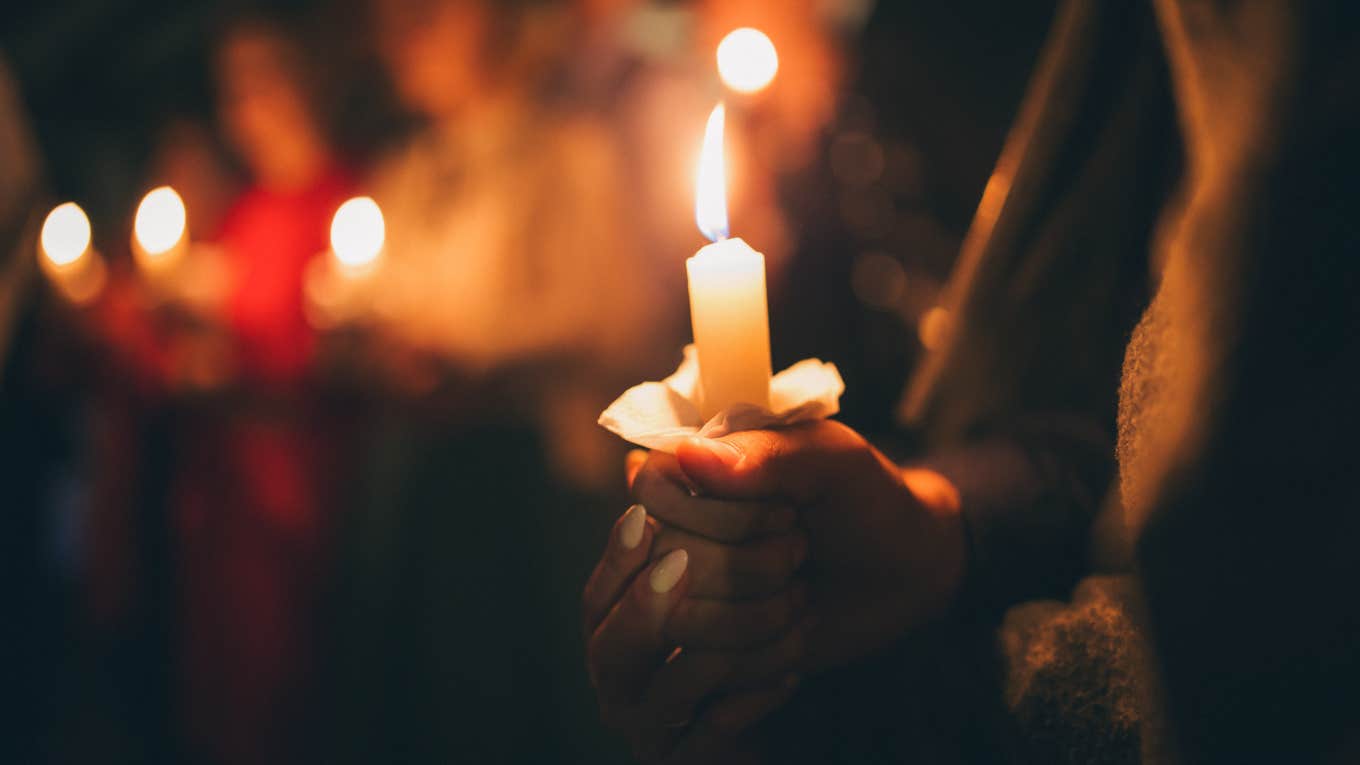Why You Feel Like You Need To Know All Of The Traumatizing Details Any Time A Celebrity Passes Away, According To A Psychologist
There's a psychological reason, but there also may be a more personal reason.
 EvGavrilov | Shutterstock
EvGavrilov | Shutterstock Robin Williams. Michael Jackson. Phillip Seymour Hoffman. Anna Nicole Smith. Amy Winehouse. Heath Ledger. River Phoenix. Matthew Perry. And, now, Liam Payne.
This is certainly not an exhaustive list of celebrities who have died under tragic and shocking circumstances, but it includes some of the biggest names in recent memory. And they all had one thing in common — we just had to know every detail about their deaths.
Why is it that we must know every gruesome little piece of information when a celebrity passes away? It turns out that there’s an actual psychological reason.
A psychologist explained why we want to know everything about celebrity deaths.
Writer Stevie Martin covered the reason we want to know exactly what happened when a celebrity passed away for Grazia after the death of Amy Winehouse. Martin referenced Winehouse’s mother, Janis Winehouse, who wrote a memoir called "Loving Amy" following her daughter’s death.
After sharing an excerpt from the book, she posed the all-important question: “Let’s be honest, if you’re going to buy the book, it’s quite likely these are the sorts of tragic anecdotes you’re buying it for. But why are we, the general public, so interested in the details of a legendary singer’s death?”
It’s a fair question. When someone we know passes away, it makes sense that we would want to know what happened. We need closure. But can the same really be said of a celebrity?
According to psychologist Dr. Simon Moore, like many things, it’s all about us.
“We’re all interested in death because it comes to us all, but there’s also some grim, perverse satisfaction from knowing that a celebrity, with all this wealth and fame, could go the same way we all do. In terms of wanting to know all the sordid details — it’s a vindication for us,” he explained.
“We think, ‘Well, I never wanted to be a celebrity anyway, look, they die of an overdose. I’m happy in my safe little boring office in Slough,’” he continued. “It’s all about you.”
We enjoy the gossip we’re able to participate in because of the information we have.
“There’s another side of this, and that’s the kudos you get from social groups by knowing more detail than everyone else. If you know what really happened, then immediately you’re the focus and the center of attention,” Dr. Moore said.
“Gossip is an interesting thing; it’s just there to make you popular, giving you fleeting social status,” he added. “In this age, information is at our fingertips. We need to match other people and know more than the next person.”
Dr. Moore explained that really, we find a strange sense of comfort in knowing this kind of information.
“It’s like watching soap operas, it’s soothing for us,” he said. “It restores the balance of life, like yin and yang.”
Is it possible we do feel some connection to these celebrities, though?
Despite Dr. Moore’s summarization of our natural need to know, it would be easy to argue that that doesn’t apply to you. You had a real connection to that person, famous or not.
This can be due to what’s known as a parasocial relationship.
Per Psychology Today, “Parasocial relationships refer to one-sided relationships in which a person develops a strong sense of connection, intimacy or familiarity with someone they don’t know, most often celebrities or media personalities.”
Really, any connection you feel to a celebrity is one-sided. (Unless you actually do know someone famous.) The entire relationship is taking place from your perspective.
However, what is undoubtedly real is the impact someone can have on your life, whether you know them or not. Just because someone is a celebrity doesn’t mean they don’t mean a lot to you.
Your feelings are valid.
Mary-Faith Martinez is a writer for YourTango who covers entertainment, news and human interest topics.
